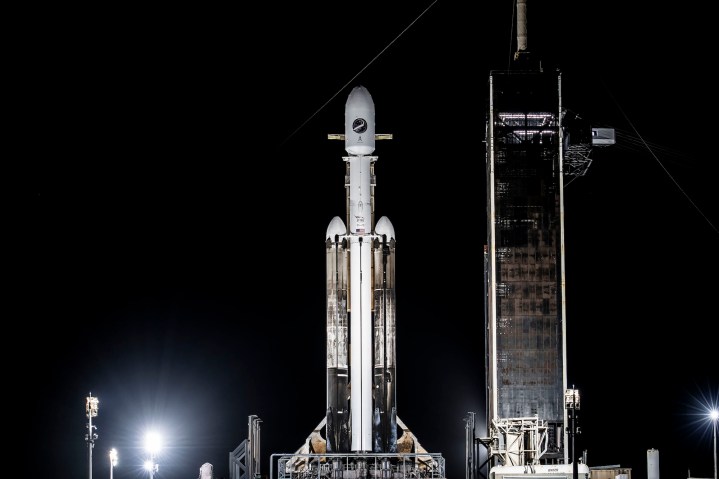
SpaceX has already stood down from four attempts to launch the USSF-52 mission using its Falcon Heavy rocket to deploy an experimental space plane for the U.S. Space Force (USSF).
Poor weather conditions and an unspecified issue on the ground are among the various reasons given for the launch delays, the most recent of which occurred on December 13.
Since then, SpaceX has announced that it’s targeting the evening of Thursday, December 28, for the fifth attempt at getting the USSF’s mission into orbit from the launch site at the Kennedy Space Center in Florida.
With no reports of any issues with SpaceX’s Falcon Heavy rocket, all eyes are on the weather conditions expected for Thursday.
The good news is that, according to the 45th Weather Squadron, which provides detailed assessments for air and space operations in the U.S., there’s an 80% probability that the weather will be favorable for launch, with some mild concerns over cumulus nimbus clouds that are expected to move in.
The Squadron said to expect some “spotty showers overnight and into Thursday morning,” adding that “much of the upper-level moisture associated with the wave will move off the coast by midday, leaving only low topped showers along the front to the west by the launch window,” which opens just after 8 p.m.
If SpaceX is forced to stand down from Thursday’s launch, there will be another opportunity on Friday. The Squadron suggests there will be only a 5% probability of violating weather constraints on that day, in the form of potential winds.
The mission will see the triple-booster Falcon Heavy fly for the ninth time and will be its first launch since October when it deployed NASA’s Psyche spacecraft on a mission to explore a metal asteroid.
The Falcon Heavy will deploy the USSF’s uncrewed X-37B space plane. The vehicle is used to demonstrate a range of technologies, and this will be its seventh trip to space. The length of the mission hasn’t been announced, but the longest time the space plane has spent in orbit is 908 days, so the expectation is that this, too, will be a long flight.
If you’re interested in watching the Falcon Heavy lift off from the Kennedy Space Center, as well as the landing of its two side boosters a short while later, then Digital Trends has all the information you need.
Editors’ Recommendations
Services Marketplace – Listings, Bookings & Reviews
